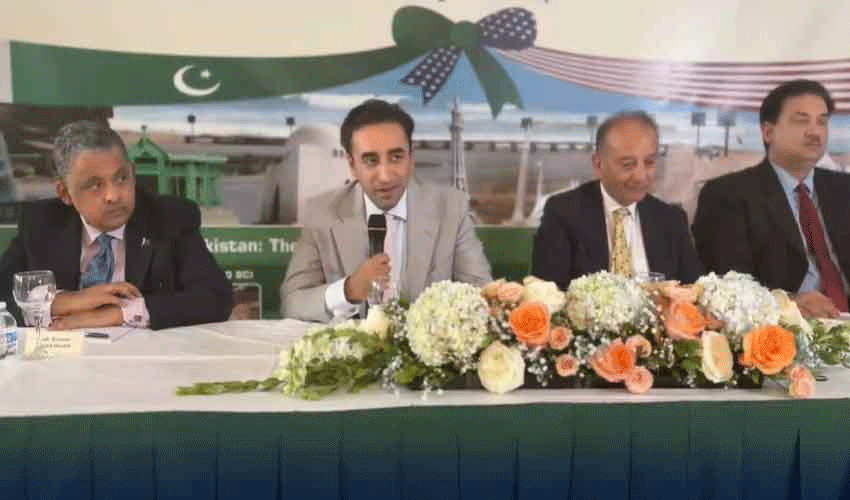A senior Pakistani diplomatic team has arrived in the UK after completing a five-day mission to the United States. The delegation held over 50 meetings with American lawmakers in Washington and New York to explain Pakistan’s viewpoint on the ongoing Pakistan-India conflict.
The team was led by Bilawal Bhutto-Zardari, former foreign minister and chairman of the Pakistan Peoples Party (PPP). The members included Senator Sherry Rehman, Hina Rabbani Khar, Dr. Musadik Malik, Khurram Dastgir Khan, Jalil Abbas Jilani, Tehmina Janjua, Bushra Anjum Butt, and Syed Faisal Subzwari.
This diplomatic push came after the recent war between India and Pakistan. The trigger was an incident in Pahalgam, Indian Illegally Occupied Jammu and Kashmir (IIOJK), on April 22. Gunmen attacked and killed at least 26 civilians. India blamed Pakistan. Islamabad denied involvement. In response, India launched strikes on Pakistani soil, leading to several days of military engagement.
Senator Sherry Rehman told media in London that the U.S. lawmakers understood Pakistan’s perspective. She stressed that the use of water as a weapon must stop. “India is turning into a belligerent state,” she said. She described IIOJK as the largest open-air prison.
Sherry rejected claims that the Pakistani team was following India’s footsteps in the U.S. “Our mission is independent,” she stated. “We are not chasing anyone. Our story is ours alone.” She warned that any future attack from India would be met with a strong response. Still, she emphasized the delegation’s aim was peace and diplomacy, not conflict.
Faisal Subzwari said their journey began at the UN. “We presented Pakistan’s case clearly,” he said. “Despite our military edge, we are here to offer peace.” He urged world powers to recognize the risk of two nuclear states locked in conflict. “India wants to commit aggression without evidence,” he added, referring to the attack that sparked the India-Pakistan standoff.
Subzwari said India had struck civilian sites inside Pakistan without proof. He hoped the current ceasefire could lead to long-term peace. The delegation’s peaceful stance, he noted, was well received in meetings with U.S. officials.
Khurram Dastgir called the water dispute a “life and death matter” for Pakistan. He claimed that India avoids dialogue and blocks neutral investigations. “Americans believed the Trump-brokered ceasefire needed no follow-up,” he said. “We showed that further engagement is essential.”
Jalil Abbas Jilani said the team met the UN secretary-general and other key figures. He restated Pakistan’s long-standing plea for peaceful talks with India. “India committed aggression. We responded and changed global opinion,” he said. “Now the world sees Pakistan as peace-seeking.”
Jilani also said Pakistan had jammed Indian systems, destroyed military targets, and downed six Indian planes. “The Kashmir dispute is now seen as a global issue,” he added.
Senator Bushra Anjum Butt highlighted talks on the Indus Waters Treaty (IWT) and Kashmir. She warned that if India violates the treaty, all future agreements will lose their value. “This region cannot survive another hostility between India and Pakistan,” she said. “Pakistan got a better response in the U.S. than India did.”
She pointed out a worrying detail—while Pakistan calls it a ceasefire, India calls it a “pause.” She warned that if Kashmir and IWT issues are not resolved, tensions will rise again in six months. She asked President Trump to help prevent a full-blown Pakistan-India conflict.
At a luncheon in Washington, Bilawal Bhutto-Zardari delivered strong words. He accused India of starting a war on false claims. “They launched an unprovoked war and failed to win it,” he said.
Bilawal criticized India’s global image. “India claims to be a net security provider. But these five days exposed its real face,” he said. He argued that U.S. funds are supporting a military threat to the region. “The only path to peace in South Asia is stable relations between India and Pakistan.”


